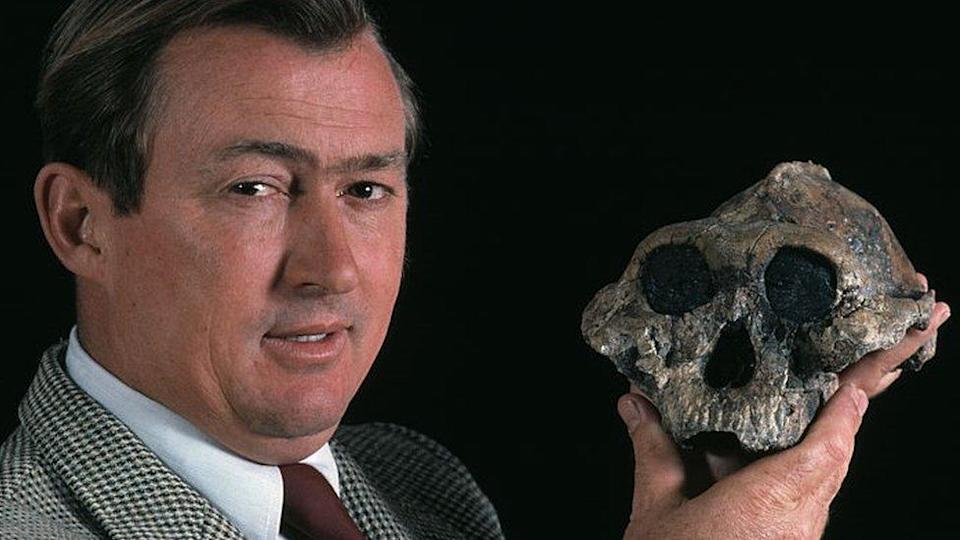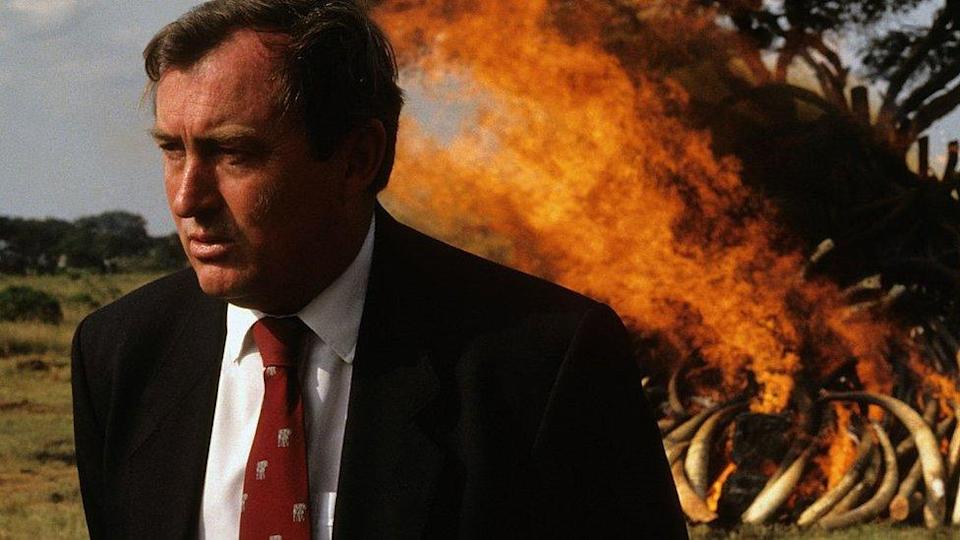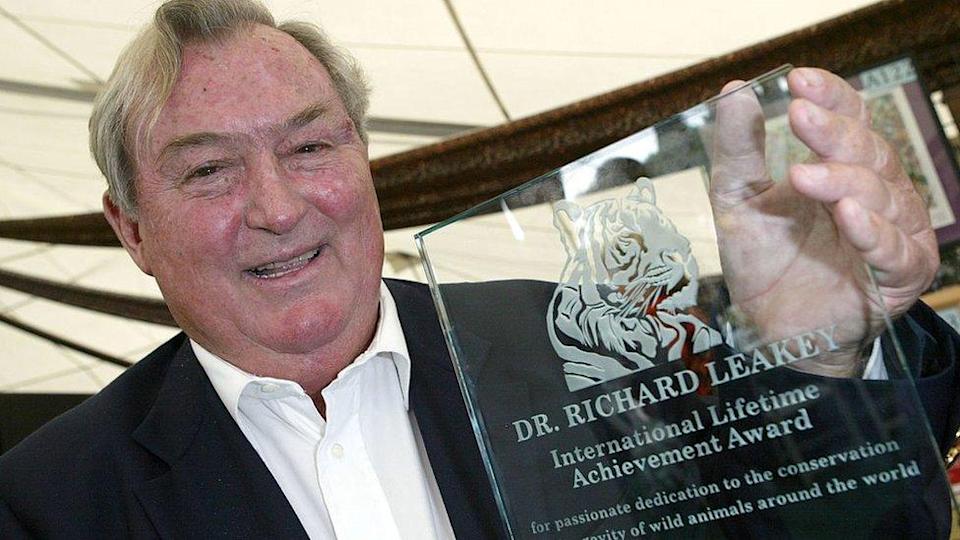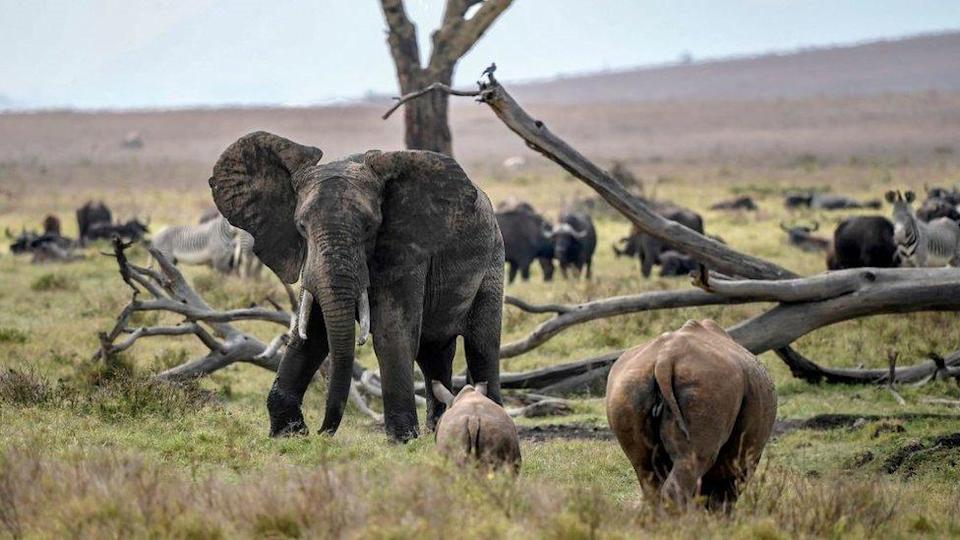
Richard Leakey, who has died days after celebrating his 77th birthday, was a pugnacious man whose achievements were as remarkable as they were diverse.
Born on 19 December 1944 in Kenya’s capital Nairobi, he was a world-famous fossil expert, author and conservationist, as well as being an opposition MP, anti-corruption campaigner, economic reformer, and head of the country’s civil service.
He was beaten up, threatened and badly injured in a plane crash which saw him lose both his legs.
“I think pressure probably suits me,” Leakey once said with urbane understatement.
His first job was studying fossils. His parents, Louis and Mary, were famous archaeologists and palaeontologists who spent decades exploring Kenya’s Rift Valley, searching for the origins of mankind.
In his 20s, Leakey almost eclipsed his parents’ work, making his own important finds and writing books.
In the late 1980s, Leakey switched careers to take over as head of Kenya’s Wildlife Service (KWS) at a time when the organisation was close to collapse and poachers were busy wiping out the country’s entire elephant and rhino populations.
Energetic, ruthless and seemingly incorruptible, Leakey told his rangers to shoot poachers on sight and organised the public burning of a huge cache of ivory as a publicity stunt to draw global attention to the threat faced by elephants.
“People were genuinely shocked that ivory was causing elephants to become extinct,” he told the BBC’s Vivienne Nunis in an interview in September 2021.


Leakey’s methods were successful but his combative style earned him plenty of enemies. It was a pattern that would be repeated again and again.
When, in 1993, the single-engine plane he was flying lost power and crashed, many speculated that it was sabotage. Both of his legs were amputated below the knee.
In 1994 Leakey changed careers once again, quitting the KWS to enter the equally ruthless world of Kenyan politics and helping to form an opposition party called Safina to campaign for multi-party democracy.
Tough and honest
“Looking back at my careers, the political side of my life was most rewarding in terms of the country,” he told the BBC.
But it was far from being an easy ride.
On one occasion he was whipped by hired thugs. President Moi described him as a racist, an atheist and a foreigner.
But in 1999 President Moi shocked the country by appointing Leakey as head of Kenya’s civil service, and of a so-called dream team of reformers hired to rescue a country branded one of the world’s most corrupt, from a deepening economic crisis.


Supporters said Leakey had been recognised by the president as the only man tough enough and honest enough to pull Kenya out of its troubles, but questioned whether he would last long enough in the job to do any real good.
Critics said the appointment of a white man with no university education was an insult to Kenyans and one which had clearly been orchestrated by colonial mentalities still lurking in the IMF and World Bank.
In his new job Leakey certainly helped to improve relations between Kenya and international lending institutions. His appointment may well have been crucial in persuading the IMF to resume lending the government money.
For a while Leakey enjoyed unprecedented popularity as his dream team started a radical overhaul of the country’s bloated, corrupt, nepotistic bureaucracy.
But as usual, Leakey ran into trouble. Some complained again about his uncanny ability to make unnecessary enemies. Others said his anti-corruption drive was threatening the interests of too many powerful figures. Leakey stepped down in 2001 – without giving any public explanation.
Leakey said he planned to retire from active political life. He wanted instead to grow grapes on his farm in the Rift Valley.
But in 2015, he returned to public life with current President Uhuru Kenyatta appointing him as chairman of the board of the KWS. He brokered a controversial deal that allowed a Chinese-funded railway line to be built through the Nairobi National Park.
“We cannot say to the people of Kenya: ‘Oh the railway can’t come through Nairobi Park so you won’t have a railway for five years’,” he was quoted as saying at the time.
More recently, his focus had moved to what he saw as the biggest environmental threat – climate change.
“We’ve created a terrible mess,” he said.


He feared that Kenya’s national parks would one day cease to exist because they “would have dried out or washed out”.
“Poaching, I think we can deal with. But habitat loss and human expansion to encroach on water systems and forests and pollute the air – no, I don’t see anything being done in Africa,” Leakey said.
He died with his dream of building a museum on the edges of Kenya’s Rift Valley, to celebrate evolution and the common history from Africa that all humans share, unfulfilled.
“I want to build a cathedral of life, with no God,” he said.
“We are one species, we came out of Lake Turkana three million years ago and we have to recognise we’re all in the same house,” he said.
Having lived in Kenya all his life, Leakey also called for greater investment in Africa to help create jobs, which he said would allow the continent to “leap ahead”.
“I’m full of confidence that we have the human resources, Africa has just got to be given a little bit of a lift.”
You can listen to the full interview with Leakey on the BBC World Service radio programme, Business Daily, on Wednesday at 08:30 GMT.
